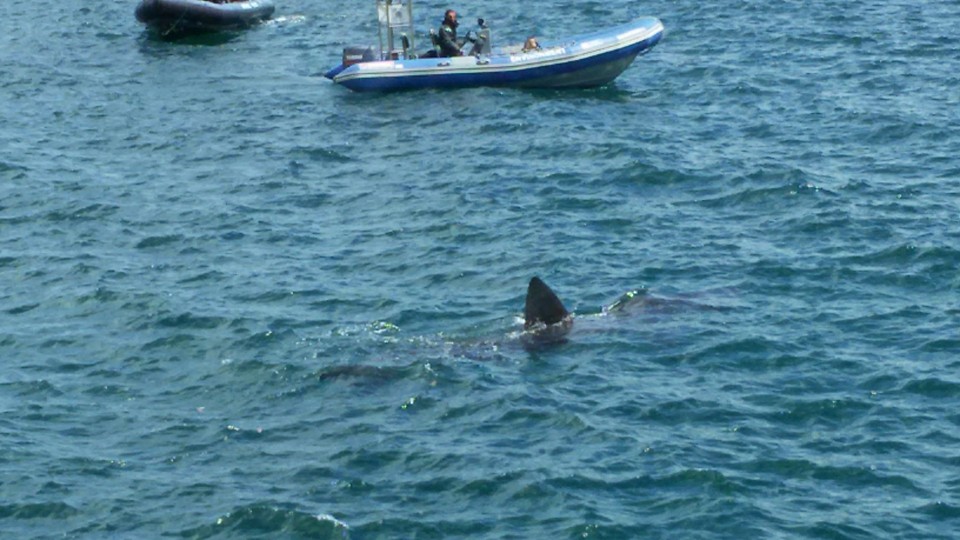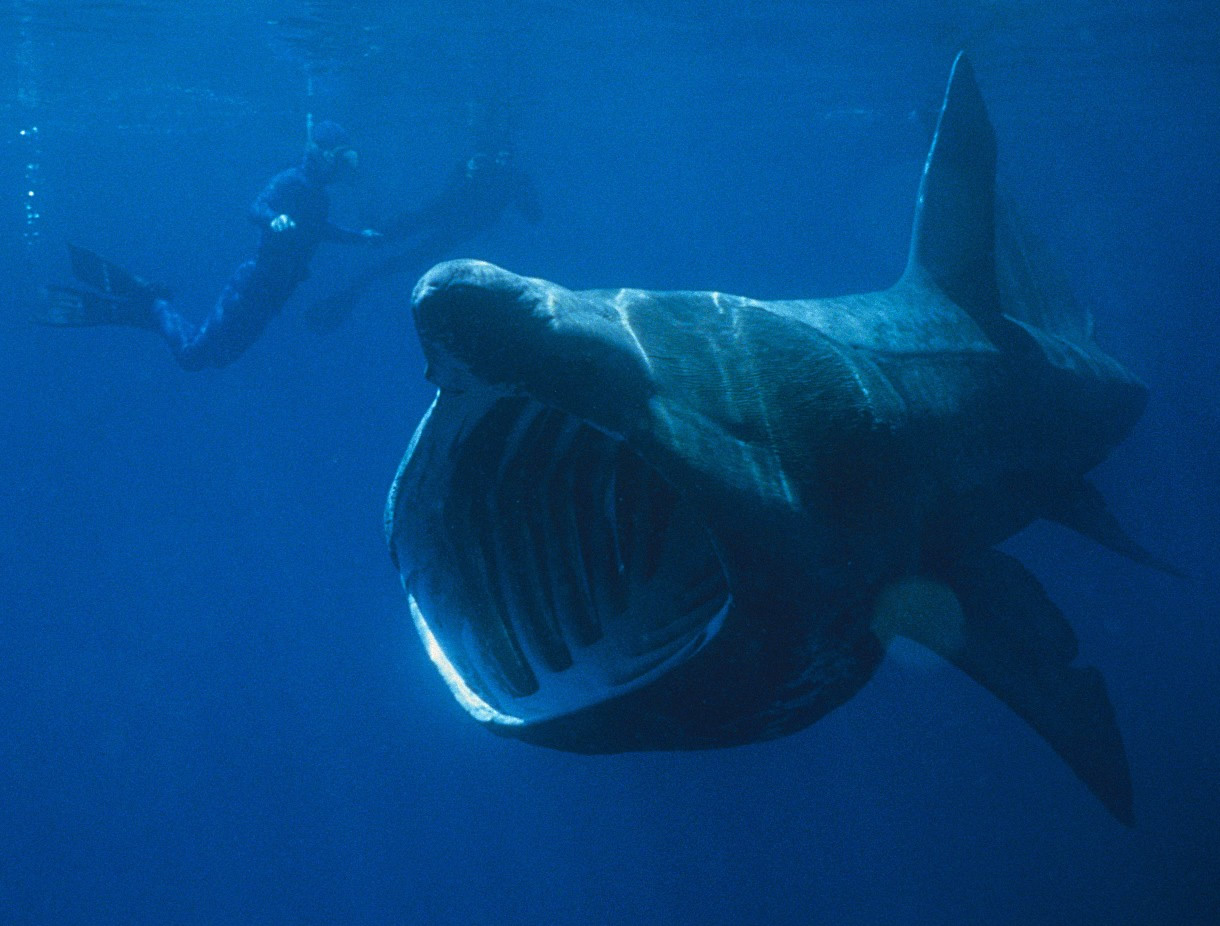Mar 21 – Basking Shark Visits Europa Point – A Fascinating Creature
 A Basking Shark was spotted off Europa Point yesterday. The Department of the Environment and Climate Change's (DECC) Environmental Protection and Research Unit attended the scene and obtained valuable data on the shark including photos of the fin which will now be shared with experts to determine whether the shark has been spotted elsewhere. The shark was around 7-8m in length indicating that it was an adult. These sharks can last up to 50 years.
A Basking Shark was spotted off Europa Point yesterday. The Department of the Environment and Climate Change's (DECC) Environmental Protection and Research Unit attended the scene and obtained valuable data on the shark including photos of the fin which will now be shared with experts to determine whether the shark has been spotted elsewhere. The shark was around 7-8m in length indicating that it was an adult. These sharks can last up to 50 years.
Some Facts…
The Basking Shark is an extremely large and mysterious fish whose exact movements are still not known. These sharks can grow to lengths of over 10 meters thus making them the second largest fish in the ocean; the largest is the Whale Shark.
They are not very common in Gibraltar but are infrequently seen in the region. Despite their large size and threatening appearance, Basking Sharks are not aggressive and are harmless to humans. Unfortunately, hundreds of thousands of Basking Sharks have been killed for their liver oil and their fins which are still used for shark fin soup. They are therefore a species in need of very strict protection.
The mouth of a Basking Shark is very recognizable since they are tremendously large (see photo below) - they can be well over one meter in width! With a shark this size, one would probably expect them to have long, pointy teeth similar to those of a Great White or Tiger Shark. On the contrary - they have several rows of many diminutive teeth. The large size of their mouths, and the small size of their teeth directly coincide with the shark’s diet.
In order to eat, Basking Sharks keep their mouths open while they swim, and sift the plankton out of the water. When the seas are calm and the weather is settled and sunny, just like the conditions experienced on the eastside of Gibraltar yesterday, the plankton concentrates at the surface of the sea. This explains why the Basking Shark was observed feeding on plankton close inshore.

{fcomment}
Latest News
- Giovanni Origo Budget Speech 2025 - GSD Shadow Minster for Youth, Tourism, the Environment and Transport
- Budget 2025 Speech by Minister for Industrial Relations, Civil Contingencies and Sport, Leslie Bruzon
- HM Customs Gibraltar Launches ASYCUDA Version 4.4 to Modernise Border Management
- Budget 2025 Speech by Minister for Equality, Employment, Culture and Tourism Christian Santos
- Declaration Of Enlistment By Royal Gibraltar Police Recruits
- Local Actors Travel To UK Drama Festival
- Bridge House Charitable Trust Welcomes Donations
- GSD Says Principal Auditor Report 2018/19 Should Now Emerge
- The Budget 2025 – Minister Gemma Arias-Vasquez's Address
- Ministry Of Equality Marks Successful End Of The Sixth Cycle Of The Women’s Mentorship Programme



